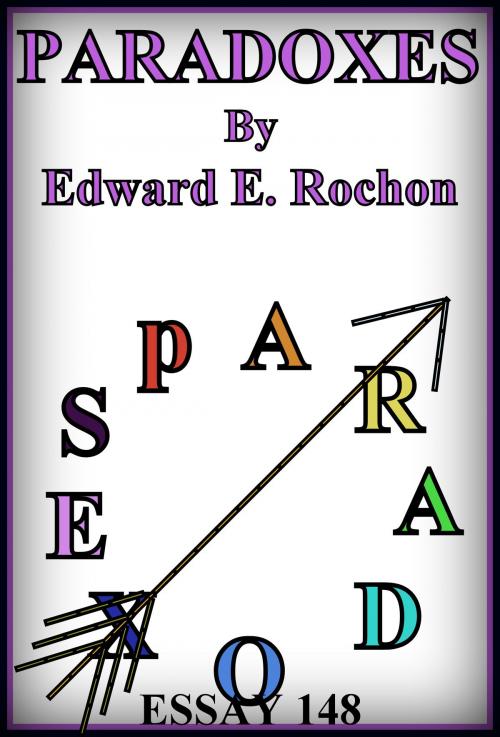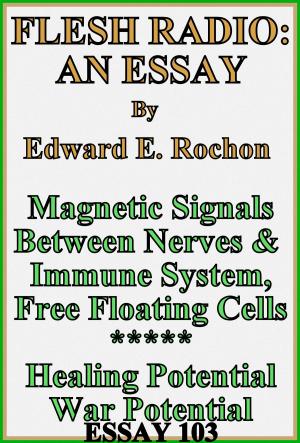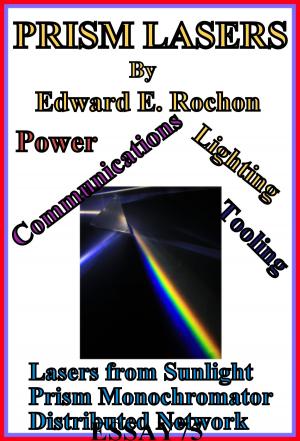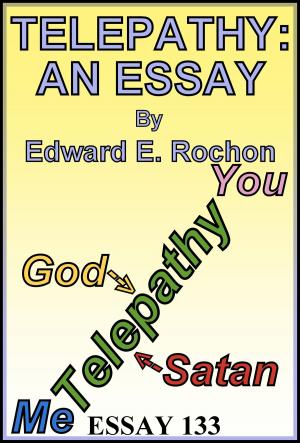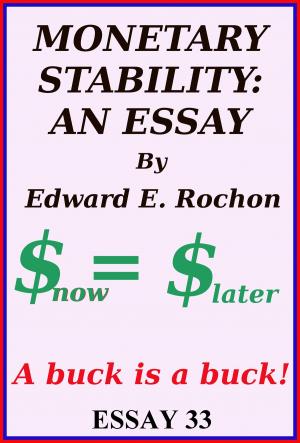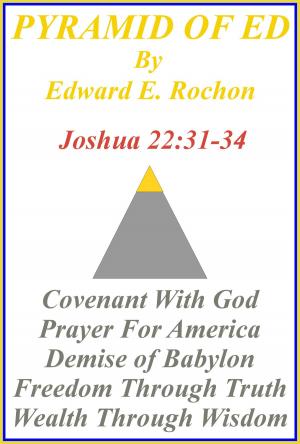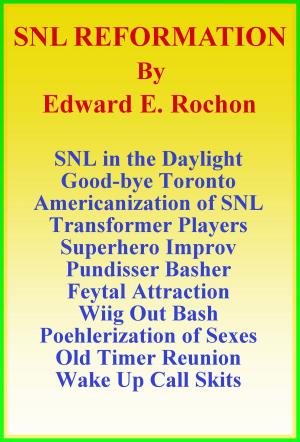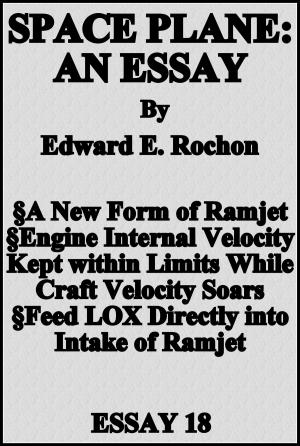| Author: | Edward E. Rochon | ISBN: | 9781370408924 |
| Publisher: | Edward E. Rochon | Publication: | November 29, 2017 |
| Imprint: | Smashwords Edition | Language: | English |
| Author: | Edward E. Rochon |
| ISBN: | 9781370408924 |
| Publisher: | Edward E. Rochon |
| Publication: | November 29, 2017 |
| Imprint: | Smashwords Edition |
| Language: | English |
Preface sets scope of work. 40 paradoxes in order in two chapters. Chapter 1 covers Zeno's paradoxes, after laying out 8 prefatory statements and 3 Math assertions: ONE: Paradox of Denseness. TWO: Paradox of Finite Size. THREE: Paradox of Complete Divisibility. FOUR: Paradox of Dichotomy of Motion and Change in Position. FIVE: Achilles and the Tortoise. SIX: Paradox of the Arrow. SEVEN: Paradox of the Stadium. EIGHT: Paradox of Place. NINE: Paradox of the Grain of Millet. Chapter 2 offers 31 other paradoxes. TEN: Paradox of Even/Odd Rational Numbers. Show how rational numbers can be both even and odd. ELEVEN: Paradox of Prime Numbers. Show that all prime factors must come out to an even count. TWELVE: Paradox of Classes. Show that A and B for one thing need not be identical as a class. THIRTEEN: Paradox of Conventions. Show that conventions are sometimes necessary. FOURTEEN: Paradox of Continuums. Continuums are a problem. FIFTEEN: Paradox of Curves. We show that curves are really polygonal progression. SIXTEEN: Paradox of Algebra and Number. We show infinite series are invalid. SEVENTEEN: Paradox of Dot Lines. We speculate all lines may be dotted lines. EIGHTEEN: Paradox of Determinism. We show that Determinism is impossible. NINETEEN: Paradox of Intent and Lies. We show that intention and reality can create paradoxes. TWENTY: Paradox of Universals. We demonstrate that ideas are real. TWENTYONE: Paradox of Ordinals. We explain why ordinals can be infinite while cardinal numbers cannot. TWENTYTWO: Paradox of Blink. We suppose all motion and time come from a blinking universe. TWENTYTHREE: Paradox of Monads. We discuss monads. TWENTYFOUR: Paradox of Linguistic Monads. We discuss why language should be composed of basic terms. TWENTYFIVE: Paradox of Space. We surmise two types of space: infinite space and finite space. TWENTYSIX: Paradox of Causation. We note that particular causation cannot be proven, while the general assertion is an axiom. TWENTYSEVEN: Paradox of Life and Death. Here we show that life is not a part of death. TWENTYEIGHT: Paradox of Chance. We maintain chance is not possible. TWENTYNINE: Paradox of False Attributes. We discuss false attributes and events lead to paradoxes. THIRTY: Paradox of Perception. We discuss confusion about perception. THIRTYONE: Paradox of Opposites. We break opposites into two: positional and antagonistic. THIRTYTWO: Paradox of Time. We discuss time and its nature. THIRTYTHREE: Paradox of Gravitation. We discuss the absurdities of Newton's gravitation at a distance. THIRTYFOUR: Paradox of Dipolar Force. We speak of magnetism in terms of mechanical forces. THIRTYFIVE: Paradox of Reciprocal Progressions. We show that since all fractional proportions of the root of 2 are incremental, all fractional parts are commensurable. THIRTYSIX: Paradox of Even Numbers. We show that even numbers are always half of any set of all whole numbers. THIRTYSEVEN: Paradox of Limits and Asymptotes. The infinitesimal of Leibniz is absurd. The idea that limits get around this is nonsense. THIRTYEIGHT: Paradox of One or Many. Zeno supposed that since parts are unlike the whole, the whole cannot be composed of parts. THIRTYNINE: Paradox of Ghosts. We surmise ghosts have telepathic powers that create eidetic imagery in perceivers. FORTY: Paradox of Gossip. What is the difference between gossip and news? BONUS PARADOX: FORTYONE: Paradox of Einstein's Proof. We note Einstein is full of it.
Preface sets scope of work. 40 paradoxes in order in two chapters. Chapter 1 covers Zeno's paradoxes, after laying out 8 prefatory statements and 3 Math assertions: ONE: Paradox of Denseness. TWO: Paradox of Finite Size. THREE: Paradox of Complete Divisibility. FOUR: Paradox of Dichotomy of Motion and Change in Position. FIVE: Achilles and the Tortoise. SIX: Paradox of the Arrow. SEVEN: Paradox of the Stadium. EIGHT: Paradox of Place. NINE: Paradox of the Grain of Millet. Chapter 2 offers 31 other paradoxes. TEN: Paradox of Even/Odd Rational Numbers. Show how rational numbers can be both even and odd. ELEVEN: Paradox of Prime Numbers. Show that all prime factors must come out to an even count. TWELVE: Paradox of Classes. Show that A and B for one thing need not be identical as a class. THIRTEEN: Paradox of Conventions. Show that conventions are sometimes necessary. FOURTEEN: Paradox of Continuums. Continuums are a problem. FIFTEEN: Paradox of Curves. We show that curves are really polygonal progression. SIXTEEN: Paradox of Algebra and Number. We show infinite series are invalid. SEVENTEEN: Paradox of Dot Lines. We speculate all lines may be dotted lines. EIGHTEEN: Paradox of Determinism. We show that Determinism is impossible. NINETEEN: Paradox of Intent and Lies. We show that intention and reality can create paradoxes. TWENTY: Paradox of Universals. We demonstrate that ideas are real. TWENTYONE: Paradox of Ordinals. We explain why ordinals can be infinite while cardinal numbers cannot. TWENTYTWO: Paradox of Blink. We suppose all motion and time come from a blinking universe. TWENTYTHREE: Paradox of Monads. We discuss monads. TWENTYFOUR: Paradox of Linguistic Monads. We discuss why language should be composed of basic terms. TWENTYFIVE: Paradox of Space. We surmise two types of space: infinite space and finite space. TWENTYSIX: Paradox of Causation. We note that particular causation cannot be proven, while the general assertion is an axiom. TWENTYSEVEN: Paradox of Life and Death. Here we show that life is not a part of death. TWENTYEIGHT: Paradox of Chance. We maintain chance is not possible. TWENTYNINE: Paradox of False Attributes. We discuss false attributes and events lead to paradoxes. THIRTY: Paradox of Perception. We discuss confusion about perception. THIRTYONE: Paradox of Opposites. We break opposites into two: positional and antagonistic. THIRTYTWO: Paradox of Time. We discuss time and its nature. THIRTYTHREE: Paradox of Gravitation. We discuss the absurdities of Newton's gravitation at a distance. THIRTYFOUR: Paradox of Dipolar Force. We speak of magnetism in terms of mechanical forces. THIRTYFIVE: Paradox of Reciprocal Progressions. We show that since all fractional proportions of the root of 2 are incremental, all fractional parts are commensurable. THIRTYSIX: Paradox of Even Numbers. We show that even numbers are always half of any set of all whole numbers. THIRTYSEVEN: Paradox of Limits and Asymptotes. The infinitesimal of Leibniz is absurd. The idea that limits get around this is nonsense. THIRTYEIGHT: Paradox of One or Many. Zeno supposed that since parts are unlike the whole, the whole cannot be composed of parts. THIRTYNINE: Paradox of Ghosts. We surmise ghosts have telepathic powers that create eidetic imagery in perceivers. FORTY: Paradox of Gossip. What is the difference between gossip and news? BONUS PARADOX: FORTYONE: Paradox of Einstein's Proof. We note Einstein is full of it.
